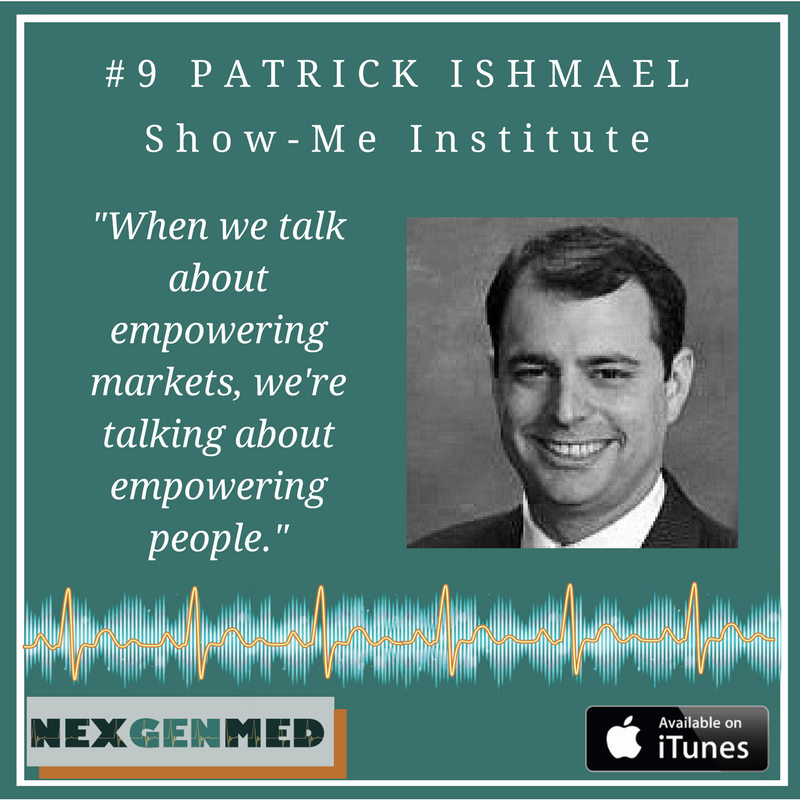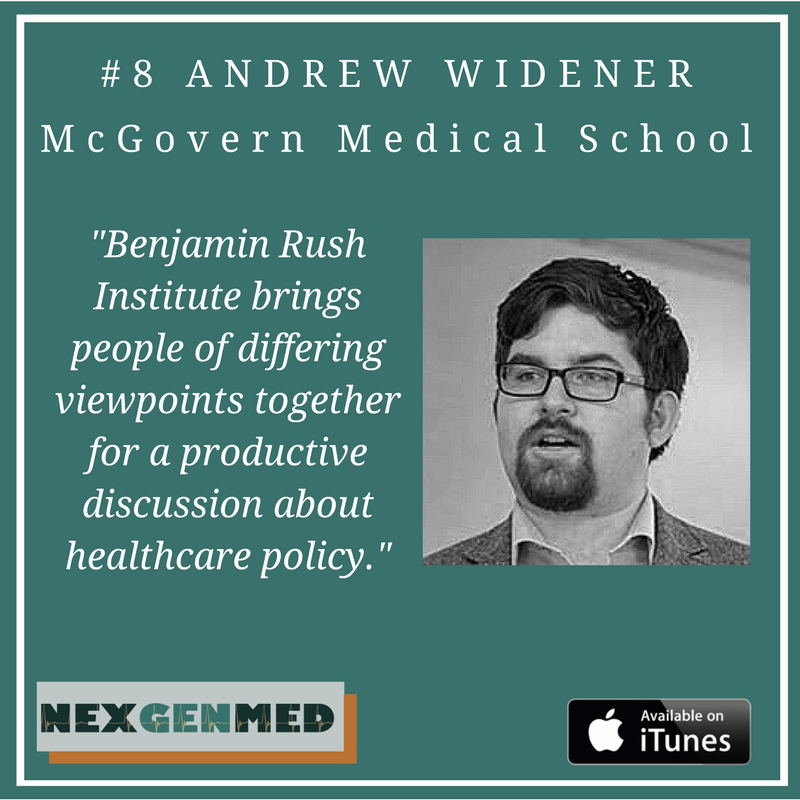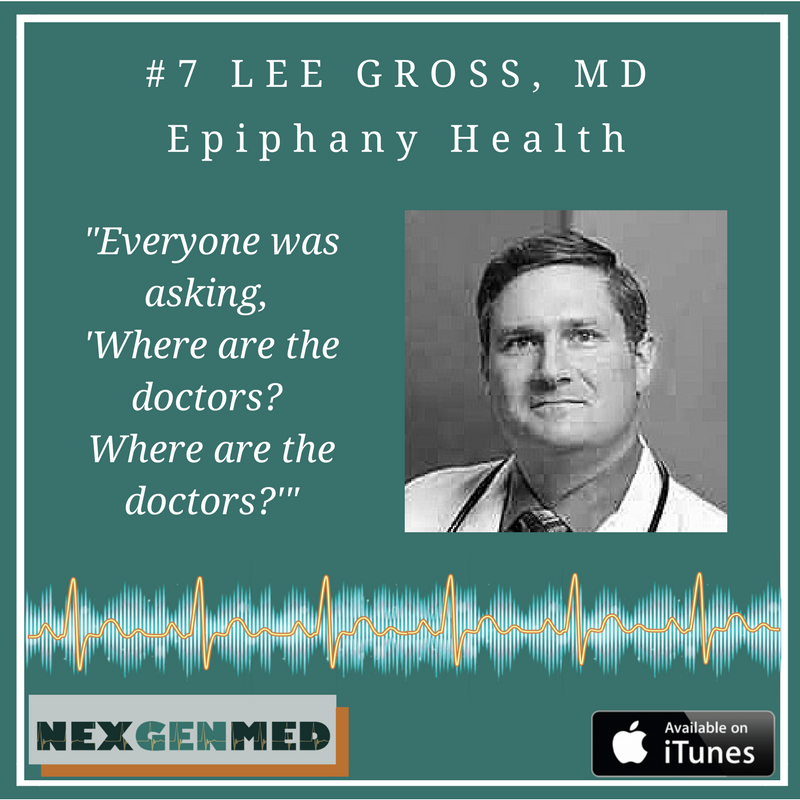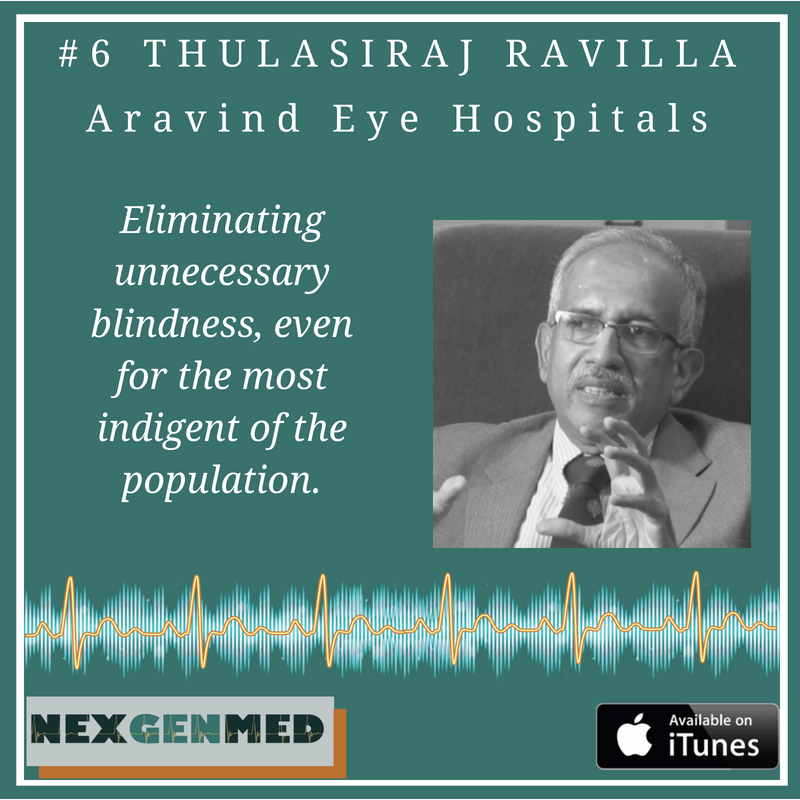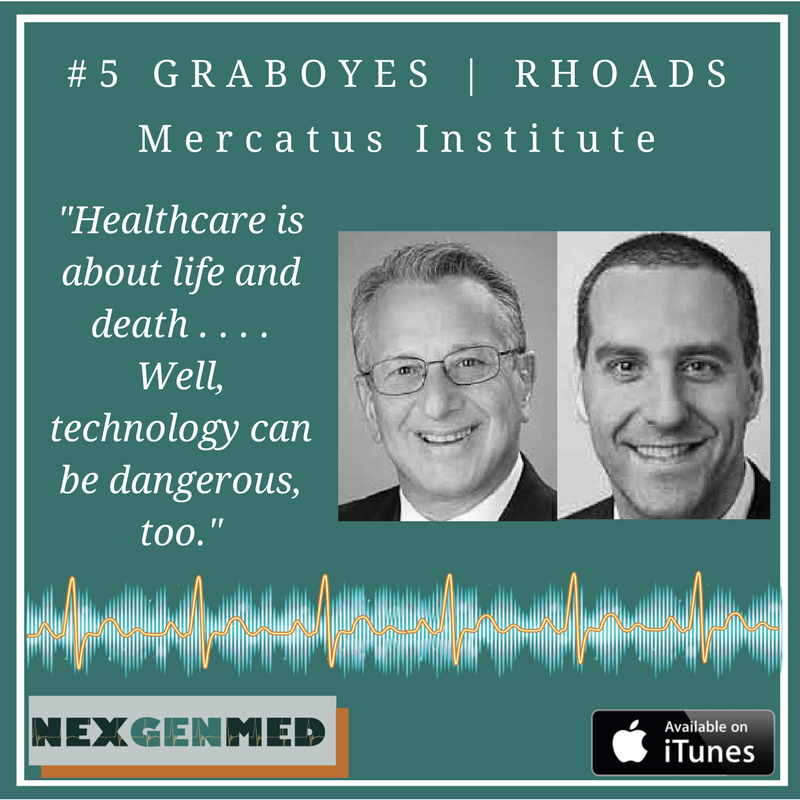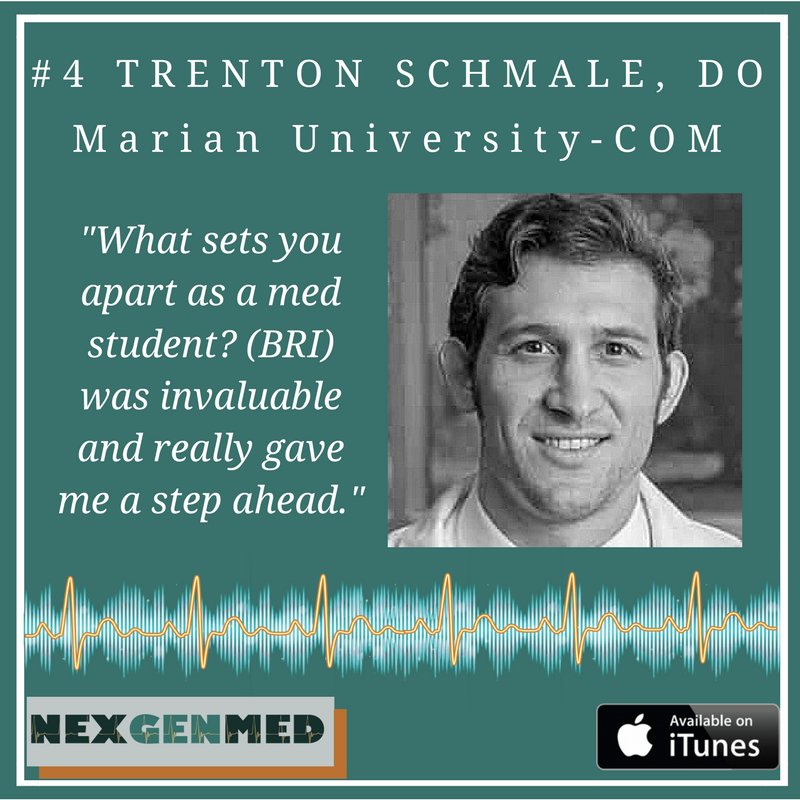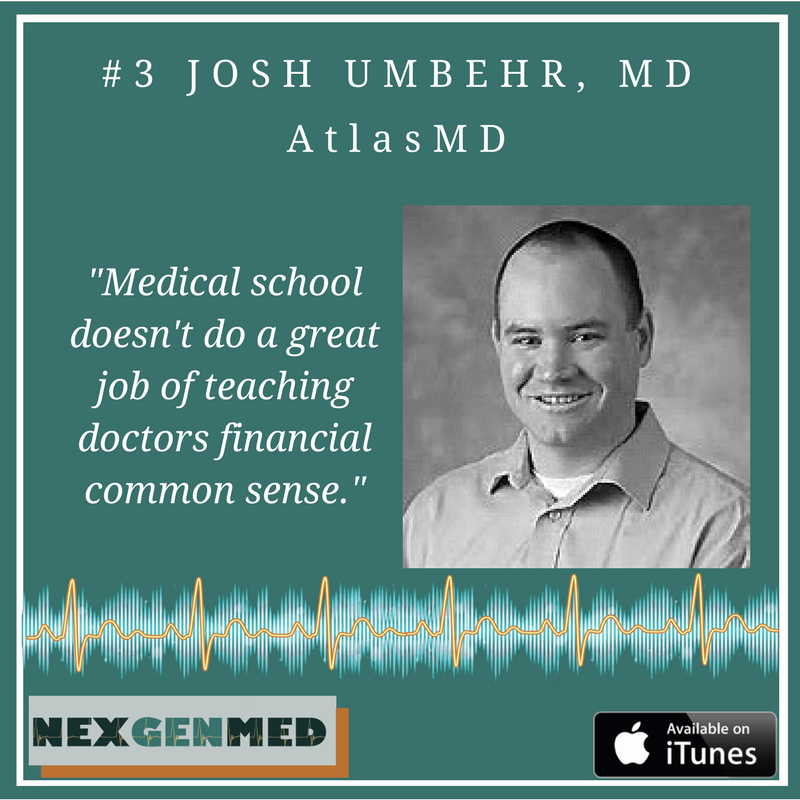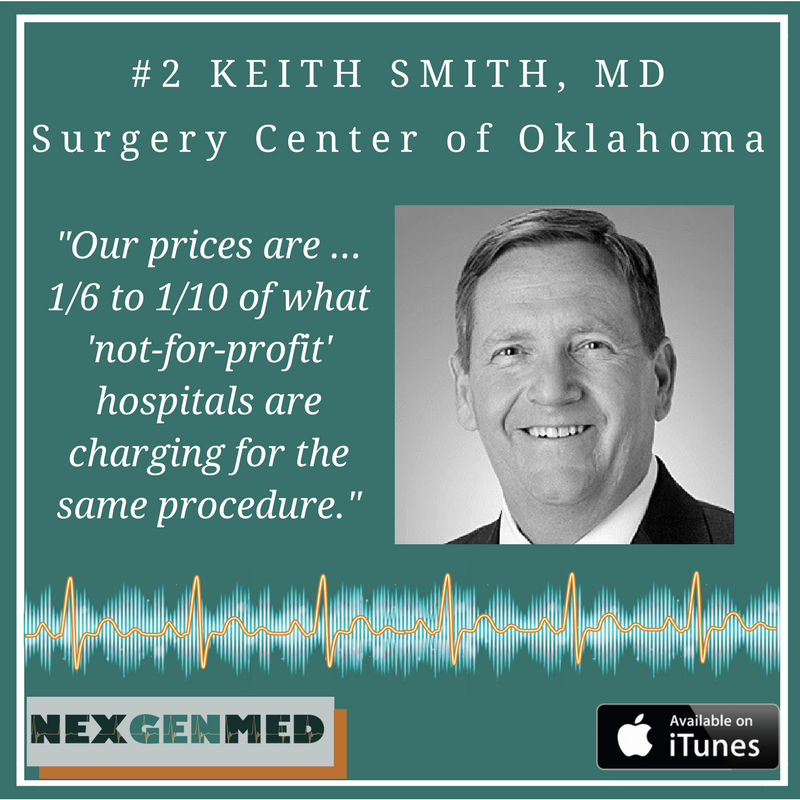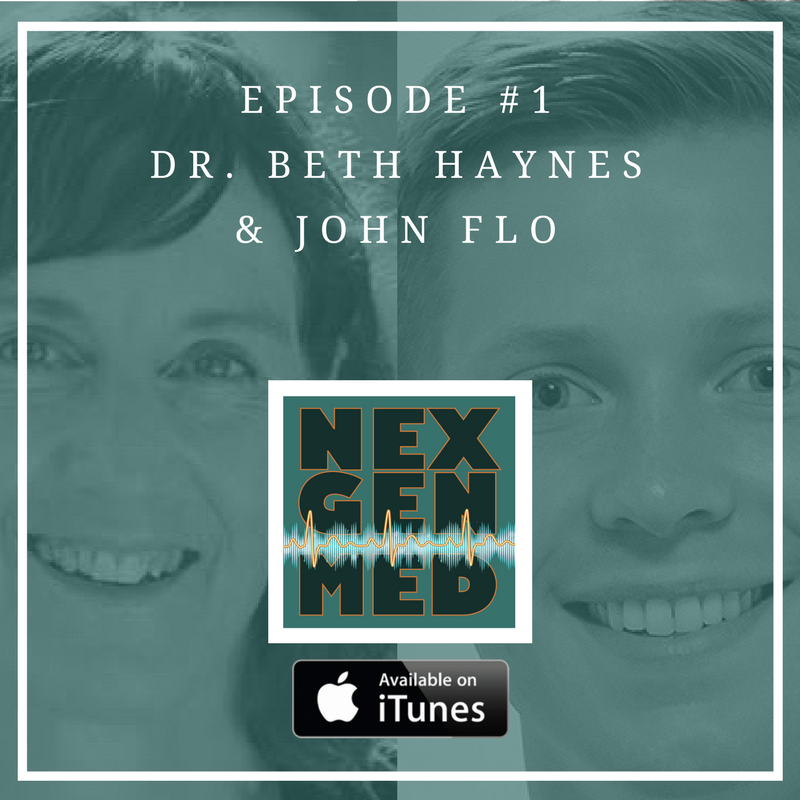The Medical Community Speaks Out
The Medical Community Speaks Out
BRI is a proud supporter of the NextGenMed Podcast, where current medical students and professionals discuss free market healthcare.
BRI is a proud supporter of the NEXGENMED Podcast, where current medical students and professionals discuss free market healthcare.
In the first of a 3-part series on diagnosing American medicine, Patrick Ishmael, JD, Director of Government Accountability at the Show-Me Institute (MO), takes on this diagnosis from a policy perspective. How are current policies influencing healthcare, and what policy solutions could be introduced to ameliorate the problems we currently face?
BRI chapters promote thoughtful health policy debate. Andrew Widener, MS1, BRI chapter president at McGovern Medical School (University of Texas, Houston) discusses how he and other medical students are making a difference beyond the classroom. Mr. Widener also shares about running a successful BRI chapter, and how BRI is the only free market organization encouraging medical students to engage in productive healthcare policy debate.
Dr. Lee Gross, president of the Docs 4 Patient Care Foundation and founder of Epiphany Health, a Direct Primary Care clinic in Florida, joins BRI’s NexGenMed host John Flo to discuss the genesis of Epiphany Health and how this direct pay model is spreading across the country. Not only are patients saving enormously on everything from routine labs and procedures to life-saving cancer treatments, states are saving millions of dollars in their healthcare budgets by enrolling their staff with DPC clinics.
In spite of these positive gains however, the fight isn’t over yet. Many states have not adopted legislation that will protect this life- and money-saving healthcare delivery model. We encourage all physicians and medical students to listen to this podcast to find out more about Direct Primary Care and how they can become involved in the free market healthcare movement.
Aravind Eye Hospitals have been saving people in India from unnecessary blindness since the 1970s. Thulsi Ravilla, director, joins BRI’s NexGenMed host John Flo to discuss how Aravind’s business model is spreading throughout India, making quality eye care affordable for even the most indigent of India’s population.
By copying the McDonald’s business model of training people—in this case technicians and physician—to perform repetitive procedures consistently, Aravind has been saving people all over India from unnecessary blindness, mostly due to cataracts. Healthcare prices don’t necessarily reflect true costs, but rather reflect healthcare practice inefficiencies. Streamlining efficiencies is just one way Aravind provides free or low-cost eye surgeries to millions of people.
Dr. Robert Graboyes and Jared Rhoads, MPH. In every other industry, advances in technology have improved quality while simultaneously lowering prices. Why hasn’t this occurred in medicine and healthcare? Dr. Robert Graboyes of the Mercatus Center discusses the effect of regulations.
Access to healthcare goods and services vary by state. Jared Rhoads, former BRI chapter leader, worked with the Mercatus Center to create the Health Openness and Access Project to index state-to-state differences.
Also – be sure to check out Jared’s other project HealthPolicyTV for the best-of-the-best videos on health policy from across the political spectrum. For more information on the role of regulations in medicine, see “Fortress and Frontier in American Health Care” by Dr. Graboyes.
Trenton Schmale, DO, founded the first BRI chapter on Marian University’s College of Osteopathic Medicine campus. He discusses his interest in free market economics, and how he leveraged his knowledge and involvement with BRI into concrete action, including influencing legislation discussions in Indiana’s state medical society. Being a free market advocate in healthcare policy is not a detriment in pursuing a coveted residency program. Trenton shares his best practices to establishing a robust BRI chapter and how to set yourself apart as a medical student.
Josh Umbehr, MD, co-founder of AtlasMD, discusses AtlasMD’s genesis and its place in the free market price transparency movement. He shares the joy and fun of Direct Primary Care and how to get started right out of medical school. Dr. Josh saves his patients money in a number of ways, while bringing an incredible amount of personalized attention to his patients’ healthcare. DPC is revolutionizing primary care. For a longer talk by Dr. Josh on DPC, watch this video.
Keith Smith, MD, co-founder of the Surgery Center of Oklahoma discusses the story behind the Price Transparency Movement. How do hospitals, government, insurance companies and the healthcare regulatory infrastructure impact pricing, access and quality of care for patients? Does transparent pricing save patients money and provide better quality of service?
John Flo, BRI-chapter founder at Saint Louis University and Next Generation Medicine host interviews Beth Haynes, MD, BRI medical director. Dr. Haynes discusses fundamental issues in healthcare policy underlying questions such as “What about the poor?” Is the overall goal to drive more and more people into government dependence, or to help people thrive independently, making the best healthcare decisions for themselves in a free market?

